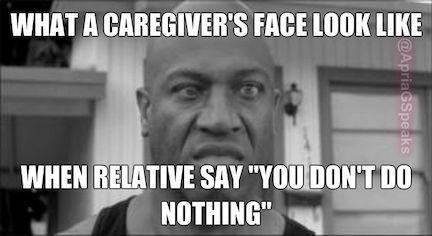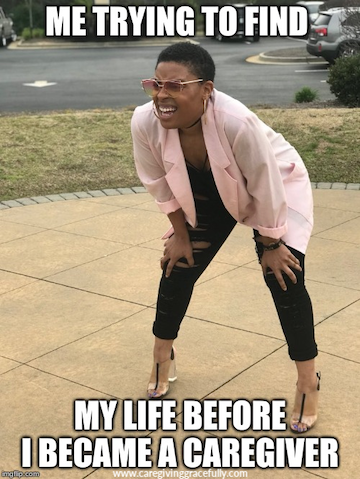Family caregiving takes a turn with a new generation lining up for duty.
GenX looks ready.
And like other generations before them, like the Baby Boomer Generation, it will all come as a big surprise.
Most of us don’t come from a tradition, or culture, that includes taking care of our elders living under the same roof.
That’s the surprising part?
Not exactly.
The surprising part is the lead-up, thinking about everything you need to prepare for.
It is a daunting task even if you feel up to it.
Why daunting?
Your patient might be the last person you’d ever expect to care for because they’d never shown a clue for caring about you.
But, there you are, listening to an aged man or woman, mother or father, in-law or step-parent, say they’re afraid to go sleep at night because they don’t know where they’ll wake up.
If they have medical issues they may wake up in an Emergency Room, a hospital bed, an assisted living complex, or ‘retirement’ home.
Add this to the mix: where would you rather visit, some institutional housing, or your house?
Start With The Patient
If they are related to you, you’ll need to create some head space.
That relationship is changing, and fast.
If it’s your dad, step-dad, or father in-law, they are now your patient. They may like the change, they may not.
Either way, you’ll be the most consistent factor in their life from here on out.
Instead of turning them into a duty, a problem to solve, or just another thing to do, make them your ally in care.
While you help them out of bed, get them to the bathroom, and clean up afterwards, ask how they would have done what you’re doing.
Remind them you’ll be changing their bed sheets after you make them breakfast. Ask them what they’d like to wear, comment on their grooming. Plan on shaving and cutting hair for another person.
If you’ve never done either, relax. You’ll figure it out after the first few flubs. If you screw up their hair, tell them they look like their favorite movie star, if you know what that is. If not, find out.
Be careful with the shaving part. If they’re on block thinners and you nick them, the blood will flow. Think of an electric razor.
New Sandwich Generation
The term ‘sandwich generation’ puts the family caregiver in the middle of the sandwich between kids on one side, and Grandpa on the other.
Your kids may wonder why you’d ever agree to be a family caregiver; you may not have a very good answer.
Let your example be the best answer.
Remind your little grinders, no matter what grade or age, that you did the same for them that you’re doing for Grandpa.
When people need help, let them see you helping on a human scale.
It’s not sending money to save a species from extinction, or helping disabled vets, it’s a lifestyle.
At the start it may feel like the first day of bringing a new puppy home. Keep this part to yourself. No one likes hearing people compared to dogs because they’ll think you’re doing the same with them.
Whatever.
All it means is an adjustment period. Different sounds, different vibes, different needs.
Like yours.
Family Caregiving Needs Come First
Without the caregiver there is no family caregiving happening.
Depending how you’re wired, you may burn out sooner, you may burn out later.
The key point is you’re going to burn out.
Here’s why: all caregiving jobs end one of two ways, and either way is a hard get.
If you breakdown, your patient goes into the labyrinth of approved care.
The other end is your patient’s death. In your house.
To either end, focus on the current day and let the others play out as they will.
It’s you, them, and everyone else you live with.
And they’re watching every move, so do your best to make it look easy.
Try not to dwell on the end.
Instead, bring in the piss and vinegar, be saucy and outrageous. Tell them spicy stories. Make some up if you don’t have one.
More than being a mother or father, or animal wrangler, you are the most important person in your patient’s life. It’s important to remind yourself of this, because no one else may recognize it.
Every family caregiver who ever answered the bell to get up and start over day after day, year after year, knows the hardship, but won’t share it.
In a world of quiet thanks, if you know a working family caregiver, give them a quiet thanks for their work.
They may not hear it from anyone else.
(The writer served five years as family caregiver for his wife’s step-father.)





